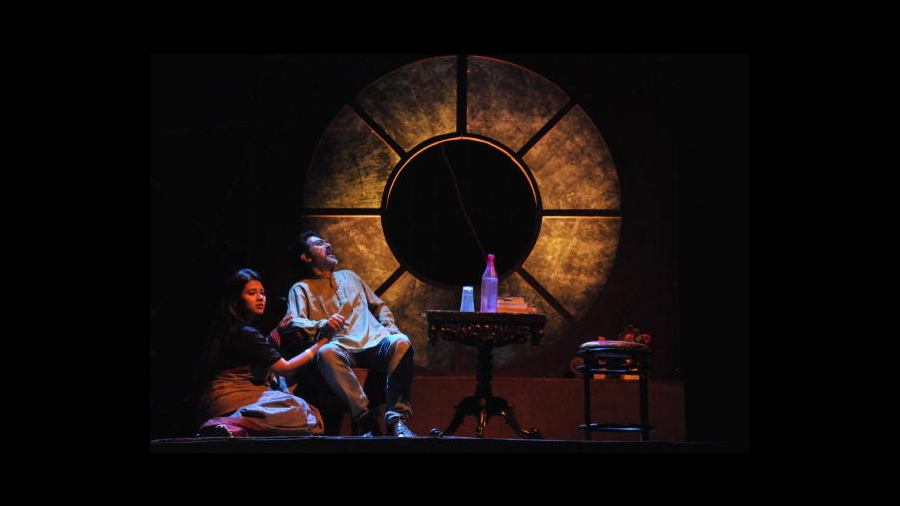“Truth is stranger than fiction” is the subtitle of A-Sukh, the latest offering from the Institute of Factual Theatre Arts. Justifiably so, since it deals with necrophilia — it is considered a taboo — a crime vaguely covered under Section 297 of the Indian Penal Code. This reviewer remembers watching Project Prometheus’s multi-layered work, Code Red (written and directed by Indudipa Sinha) in 2017 which attempted a psychosomatic analysis of the malady in the backdrop of war-torn Bosnia. In A-Sukh, IFTA places it among us.
Among the innovative theatre groups operating from Dum Dum, IFTA turned heads by opening a rooftop performance arena in Nagerbazar months before the pandemic struck. It has been fostering a wide range of experimental works ever since. However, it chose to premiere A-Sukh at the Academy of Fine Arts recently. Given its visual aesthetics, a large cyclorama was a prerequisite and it worked well in a regular proscenium space.
A-Sukh develops like a thriller. A theatre director (Debasish Dutta) lodges a missing complaint at a suburban local police station. His wife (Reshma Das) is missing. As the investigating officer (Parthapratim Roy) begins probing, skeletons start tumbling out of the cupboard. The usual suspects, like the wife’s close associates, are quizzed; all leading to a convoluted climax with the electronic media raising the decibels. Dutta, the playwright, has previously employed psychoanalytical tools to craft drama out of middle-class situations. This time, he takes a more nuanced look into the workings of an artist’s mind, empathising with social outcasts. How a Bengali theatre group gets going, despite social and financial constraints, forms the meta-narrative.
Prosenjit Bhattacharya, the director, builds the action at a leisurely pace at first and then accelerates towards the end. The media trial scenes could have been executed better. A-Sukh rests primarily on the lead trio and they delivered mature portrayals. Dutta excelled in the poetic scenes that were complemented by Das. The setting was suitably uncanny and Roy looked every bit the part.











